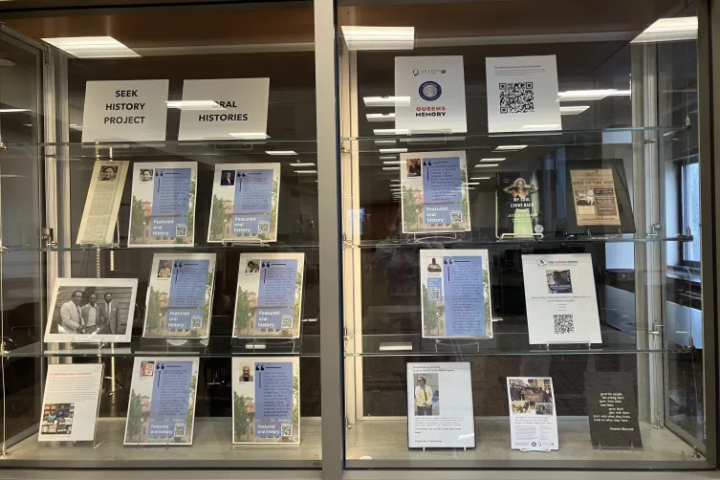Student Association President Christopher Labial began his first semester with a diagnosis he never expected would happen—depression.
“I never even entertained the notion of having a mood disorder in my life,” Labial said.
Labial said his girlfriend, Natasha Chait, saw him have difficulties over the past year and suspected there was a problem.
“She noticed how hard it was for me to sleep. I had a lot of trouble sleeping and I’d have trouble getting out of bed. I would have these depressed fits where it was hard for me to do anything,” Labial said.
Over the past summer, Chait suggested Labial try the Counseling Services at Queens College, located at the first floor of Frese Hall, as it is free for students.
“I said ‘Whatever, if it’s going to make you happy,’ but she said, ‘It’s hard for me to see you like this,’” Labial said. “I knew this was something completely normal to me, but I started to realize this could have an effect on people in my life.”
Labial went to the center and met Dr. Barbara Moore, director of Counseling Services, for help.
“Dr. Moore is great. She teaches the peer counselor and her having that background and me being in my position, I just felt so comfortable knowing that there’s someone at the school who is looking out for student like us in the way that she does,” Labial said.
Moore said Counseling Services consists of counselors that are already professors, so they are able to help students with valuable resources.
“The Counseling Center is one of the only places on campus that students can go to discuss things that concern them, perhaps things they’ve not told to others, and be assured confidentiality,” Moore said.
Labial felt better after two months of counseling, but struggled with anxiety.
Before major events, he felt anxious and sometimes did not sleep before it. After it, he would feel mentally exhausted and depressed.
After Labial booked an appointment with a psychiatrist in October, he was diagnosed with depression. He received antidepressants as a prescription.
Labial, once officially diagnosed, discovered a stigma attached to mental illness.
“I was rudely awakened when I decided to tell my mom and she was upset. She said, ‘You don’t need that, you’re completely fine. Everyone has these problems, just snap out of it.’” Labial said. “I told my dad and he said, ‘You’re taking antidepressants? I hope it helps you clean your room.’ He was cool about it.”
Moore said the stigma is not as prevalent with more people seeking help.
“People are less ashamed of going to counseling and more likely to come than they used to be. People used to think that, if you go to counseling, it must mean you’re crazy, but that’s not the case,” Moore said.
The beginning of the fall semester was difficult for Labial. For a month, he did not attend class or SA meetings and avoided online communication.
“I felt such a burden but at one point I just said enough,” Labial said. “I sucked it up and told my chairs, my board and eventually told my whole student government.”
Labial found the more people he told his diagnosis, the more others either affirmed his courage or admitted they too struggled with depression. He found it reassuring to have support, but wanted to personally deal with it.
“The hardest part about seeking treatment was that I did not want to belittle the people around me,” the president said. “But I’m doing this for them. I want to be the best I can be and that’s my reason behind getting help.”













